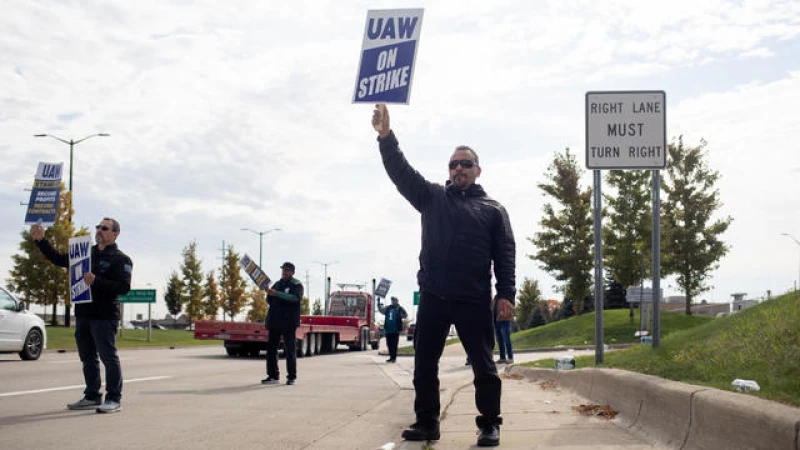Despite the United Auto Workers' portrayal of its tentative agreement last month with Detroit's Big 3 automakers as a major victory for labor, an increasing number of union members appear to disagree.
According to a vote tracker maintained by the UAW, rank-and-file GM workers from 11 different UAW chapters have recently rejected the automaker's proposal. Additionally, members from three other chapters have rejected Ford's proposed labor contract, while two chapters have voted against the Stellantis deal.
These rejections have come after UAW members spent six weeks on strike at the companies. Labor experts have noted that it is common for some chapters to oppose a new contract, as labor deals cannot satisfy everyone. For instance, UAW members at Mack Truck rejected the company's tentative agreement last month and have since remained on strike. Similarly, in 2021, UAW members at John Deere also voted against a proposed labor deal.
Union leaders recently announced that they have come to an agreement with the Big 3, resulting in increased wages over a four-and-a-half year period and cost of living adjustments. While the deals eliminate the two-tier system at some Big 3 plants, it remains in place at others. The tentative agreements are currently being reviewed by UAW chapters, where members will vote to approve them. So far, the majority of chapters have shown support for the deals.
According to labor relations expert and Rutgers professor Rebecca Kolins Givan, opposition to a proposed labor contract can indicate member engagement and a healthy debate about the offer.
However, the situation with the Big 3 is slightly different. Autoworkers who voted against the agreements are likely advocating for improved retiree health care benefits and a defined benefits pension plan, according to Givan.
Lynne Vincent, a business management professor at Syracuse University, added that autoworkers are also rejecting the agreements due to their ongoing concerns with the automakers' two-tier wage system. Many union members still desire the elimination of tiers.
The UAW has chosen not to comment on the chapters that have rejected the tentative agreements. UAW President Shawn Fain stated in a recent video address that the labor group has negotiated to the best of their ability with the automakers.
"What happens next is not up to us – it's up to you, the membership," Fain emphasized. "I don't decide your vote. The executive board doesn't decide your vote. Your local leadership doesn't decide your vote. You decide."
Several UAW chapters across the United States, including those in Flint, Michigan; Marion, Indiana; Spring Hill, Tennessee; Louisville, Kentucky; Portland, Oregon; and Tonawanda, New York, have rejected the proposed deals from Ford, Stellantis, and GM.
However, it should be noted that the agreements are not in immediate danger of collapsing as only a few chapters have voted against them. According to Givan, the Ford and Stellantis contracts could still pass even with the current opposition. The GM contract has faced the most resistance, but there is a possibility that it could be approved as is.
If a majority of unionized autoworkers choose to reject the proposals from the Big 3 automakers, the union may decide to either resume the strike or return to the bargaining table to demand further concessions.
"Voting is still ongoing, and there is no definitive outcome at this point," Vincent stated. "It is also possible that the contract will be approved by one automaker but not by the others."







